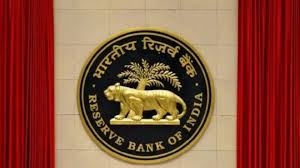The Reserve Bank of India (RBI) has released revised master directions on Fraud Risk Management applicable to Urban Cooperative Banks (UCBs), State Cooperative Banks (StCBs), and Central Cooperative Banks (CCBs).
The updated directions, named “Reserve Bank of India (Fraud Risk Management in UCBs / StCBs / CCBs) Directions, 2024,” supersede the previous guidelines. They mandate Cooperative Banks to establish and implement robust policies and systems to handle potential fraud risks efficiently.
Key Highlights of the master directions:
Governance Structure: Cooperative banks are required to establish a Board-approved policy on fraud risk management that should clearly outline the roles and responsibilities of the Board, Board Committees, and Senior Management. This policy must also include provisions for ensuring adherence to principles of natural justice within specified timelines. Additionally, the policy should encompass measures aimed at prevention, early detection, investigation, staff accountability, monitoring, recovery, and reporting of fraud incidents.
Special Committee of the Board: Cooperative banks are required to establish a Board Committee named the ‘Special Committee of the Board for Monitoring and Follow-up of cases of Frauds’ (SCBMF), comprising a minimum of three Board members consisting of the Chief Executive Officer and two Directors. The Committee will be chaired by one of the directors. Additionally, Urban Cooperative Banks (UCBs) classified under Tier 1 & 2 for regulatory purposes and State Cooperative Banks (StCBs) / Central Cooperative Banks (CCBs) with deposits below ₹1000 crore have the option to form a Committee of the Executives (CoE) with a minimum of three members, at least one of whom shall be the Chief Executive Officer for the purpose of performing the roles and responsibilities of SCBMF as required under these Directions.
Responsibility of Senior Management: The Senior Management shall be responsible for implementation of the fraud risk management policy approved by the Board of the Cooperative Bank. A periodic review of incidents of fraud shall also be placed before the Board / Audit Committee of the Board (ACB), as appropriate, by the Senior Management of the Cooperative Bank.
Complaints by Whistle Blowers: Cooperative Banks shall put in place a transparent mechanism to ensure that Whistle Blower’s complaints on possible fraud cases / suspicious activities in accounts(s) are examined and concluded appropriately under their Whistle Blower Policy.
Institutionalisation of Fraud Risk Management: Cooperative Banks shall set-up an appropriate organisational structure for institutionalisation of fraud risk management within their overall risk management functions / Department. A sufficiently senior official shall be responsible for monitoring and reporting of frauds.
The Master Direction contains guidelines on Credit facility / Loan account / Other banking transactions- Indication of fraudulent activities, Independent confirmation from the third-party service providers including professionals, Staff Accountability, Penal Measures, Treatment of accounts under Resolution etc.
It also contains detailed instructions on reporting of Frauds to Law Enforcement Agencies (LEAs), reporting of Incidents of Fraud to Reserve Bank of India (RBI), Modalities of Reporting Incidents of Fraud to RBI, Closure of Fraud Cases Reported to RBI etc.
The above is a news report only. You can find out the official guidelines here.



